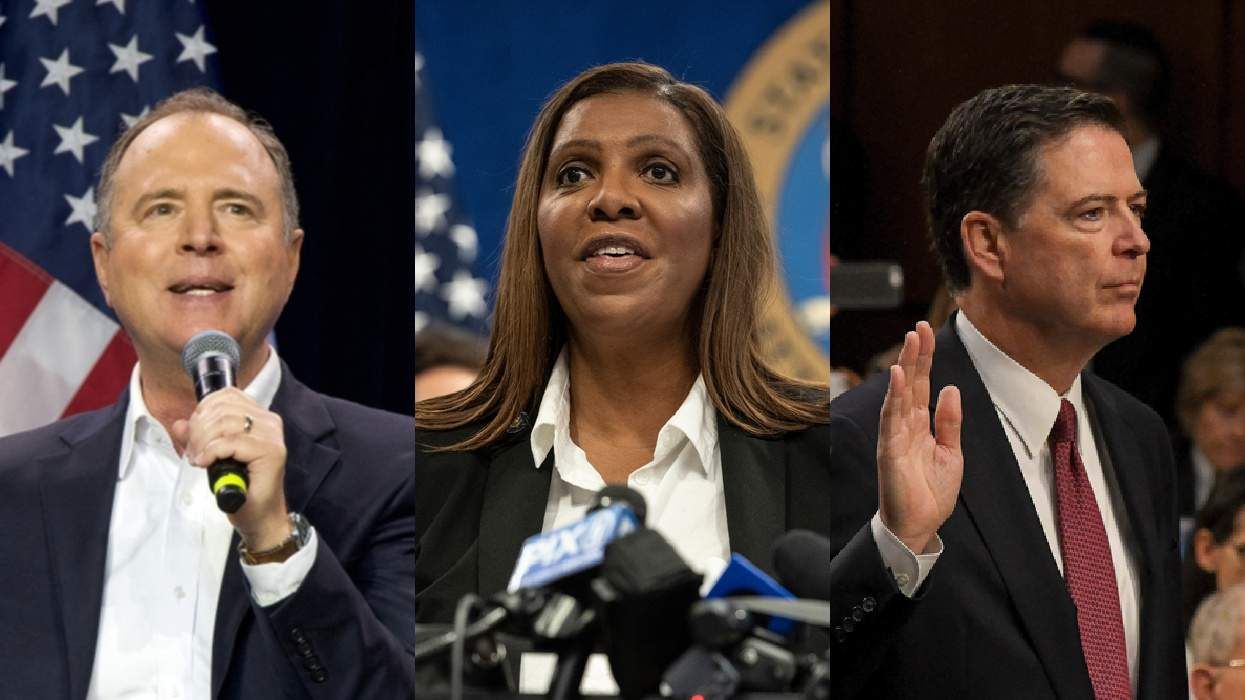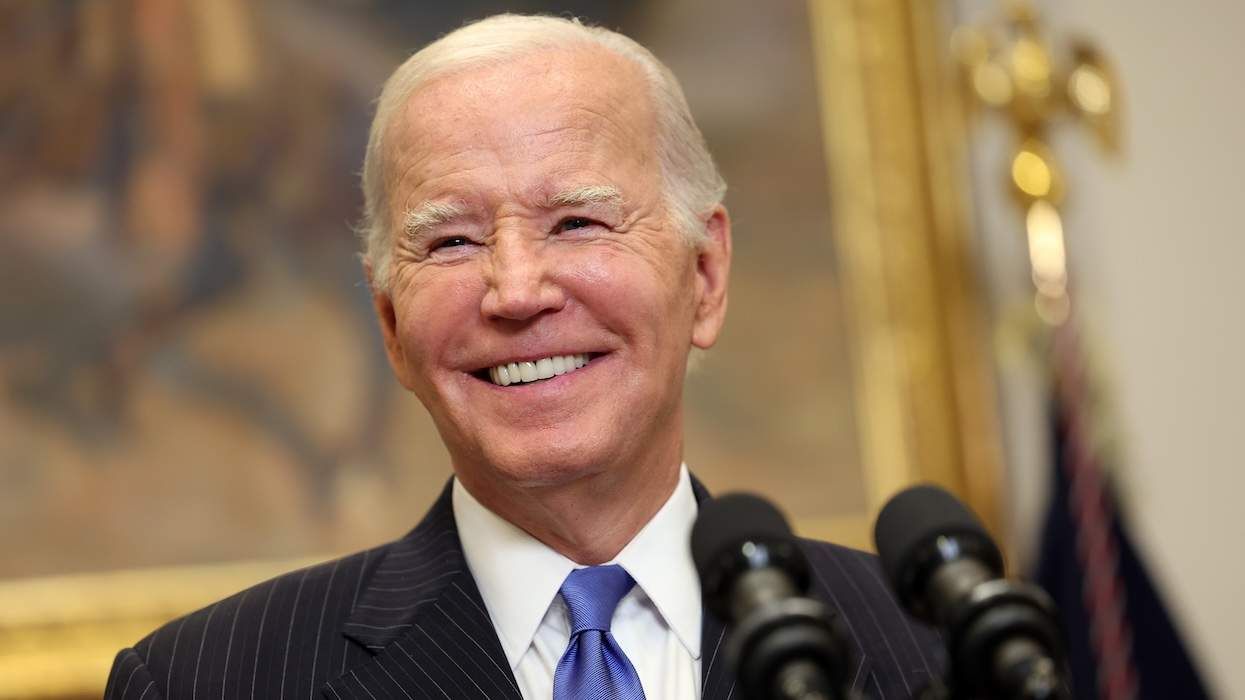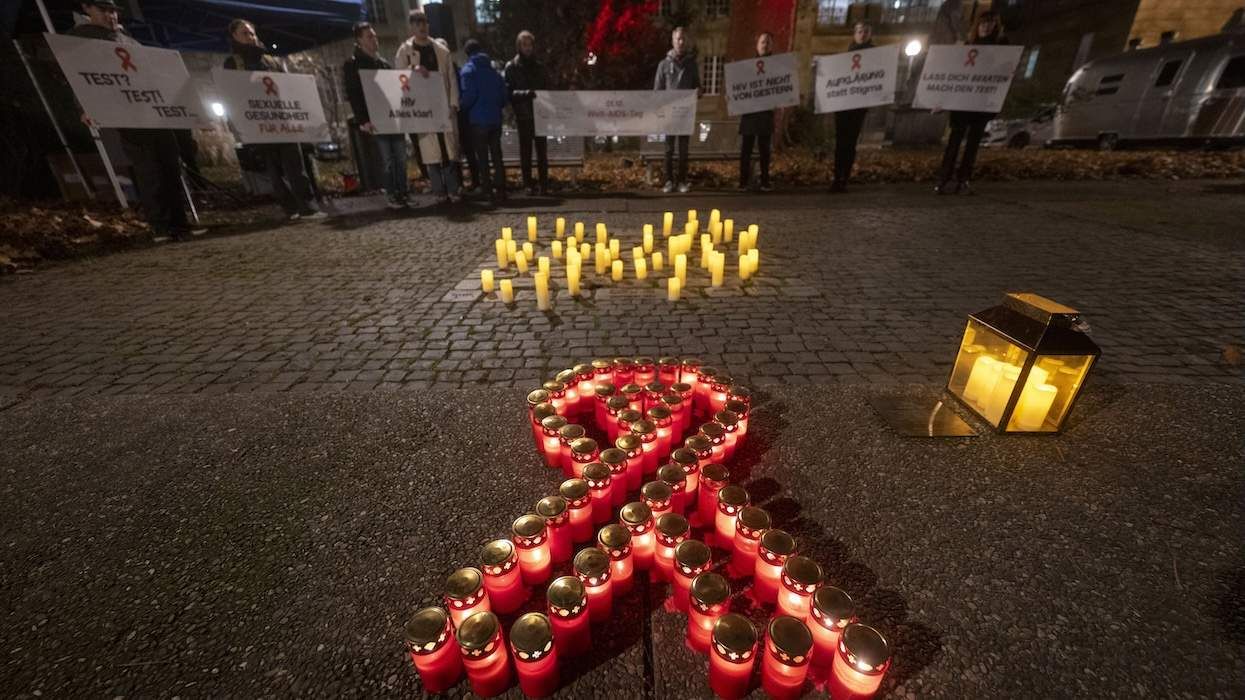The race for the Democratic nomination is over, or at least it should be.
Bernie Sanders isn't in the same position as Ted Cruz, who the Associated Press declared after Tuesday's results "mathematically eliminated" from clinching the Republican nomination before the convention. Even before New York, Cruz and John Kasich were carrying the flag for their party's "Stop Trump" movement. Now facing mathematical reality, both will soldier on. They'll try wrestling the nomination from Donald Trump at the convention.
But everyone agrees that, no matter how it ends, that strategy's going to be bad for their party. It might alienate some folks in the base. It might damage whoever becomes the nominee.
As far as I can tell, though, there's no equivalent "Stop Hillary" movement among Democrats. So why is Bernie still running?
His campaign manager, Jeff Weaver, was on MSNBC on Tuesday immediately after the network declared Clinton the projected winner (and she would go on to win by 16 points). Weaver admitted the campaign's goal isn't necessarily to win the pledged delegates; it isn't even to win the popular vote. The plan is to stop Clinton from taking the requisite number of pledged delegates needed to clinch the nomination. Then they'll launch a convention fight.
A contested convention for the Democrats would be -- almost -- as bad as it would be for the Republicans. Minus the vague incitement of violence on the GOP side, a convention fight for Democrats would still alienate some of the progressive base, and damage the eventual nominee.
We're all watching this realization happening in slow motion. An upset victory in Clinton's home state would've represented a tectonic momentum shift if it had materialized. Instead, Sanders senior strategist Tad Devine told the Associated Press on Wednesday the campaign would "sit back and assess where we are" after Tuesday, when five more states hold primaries -- Connecticut, Delaware, Maryland, Pennsylvania, and Rhode Island. Right now, Sanders is losing in polls in all five. Meanwhile, the AP's math says Clinton "can lose every remaining contest and still prevail." So, presumably, if the Sanders campaign doesn't miraculously turn in five landslides, then the true believers among the campaign staff will recognize the buzzing sound coming from the game clock. It started ringing after New York.
And can you blame the Sanders people for not immediately knowing when the end has come? This is a campaign that went from scoring single digits in the national polls to a virtual tie with the front-runner. It has out fund-raised the mighty Clintons, month after month. And Larry freaking David is on Saturday Night Live doing a killer impersonation that all of us are going to miss dearly.
It was a valiant effort, one that I think legitimately represents a shift in American politics, and maybe even a movement. Most importantly, it was an effort that also accomplished what it originally set out to do -- which wasn't about winning.
Sanders successfully moved Clinton to the left, most recently on the minimum wage. Before that, it was on the Keystone pipeline, and on the Trans-Pacific Partnership trade deal, and Clinton was basically parroting Sanders applause lines on Wall Street greed by the end of it all.
The point is that Sanders supporters have a lot of momentum to slow down before they can settle on Clinton.
That's what always happens in American politics. There exists a natural progression of political primaries. Like the five stages of grief, it's safe to expect that supporters of your primary opponent will eventually get over it and support you in the general election.
Everything is going to work just the same way as it did when Barack Obama beat Clinton in 2008. There was lots of hand wringing then over whether Clinton's supporters would feel spurned by Obama, who had infamously said she was only "likable enough."
Instead, Obama's "coalition" is one of the most storied notions in politics. And now it's Clinton's turn to create a winning coalition.
There's only one way unity doesn't happen, and that's if the Clinton campaign screws it up.
"We kicked his ass tonight," a top political aide to Clinton told Politico on Tuesday. "I hope this convinces Bernie to tone it down. If not, fuck him."
With everyone calling on staunch defenders of Sanders to "tone it down" as well -- Saturday Night Live's "Bernie" kidded that his supporters can be "annoying" and "too much" -- I'd say they too just got an F-U from the Clinton campaign.
It's anonymous. It's not from the candidate herself, obviously. But this isn't the language of unity and unicorns and rainbows.
For starters, stop questioning whether Sanders is really loyal to Democrats, and whether he'd even raise money to help Democrats win down ticket. It's the same as questioning whether Sanders supporters themselves are Democrats.
The onus for coming together is on the winner. It's not the Sanders supporters whose "job" it is to vote for Clinton. That's all a little too authoritarian sounding. Rather, it's the politician's job in a democracy to win over voters.
Supposedly, Sanders supporters are so fervent that they might refuse to back Clinton, no matter what! The rumor goes that, Sanders supporters just so despise Clinton they've lost all their senses and allegiances to the Democratic Party!
Well, exit polls from New York don't back that up.
Exit polls found that 85 percent of New Yorkers would vote for Clinton if she were the eventual nominee. Actually, more Democrats said they'd refuse to vote for Sanders if he were to win (19 percent compared to 14 percent).
I'm not pretending that's a problem. The point is: There is no problem.
Even Susan Sarandon -- who has become the poster celebrity for over-the-top Sanders support -- never said she absolutely wouldn't vote for Clinton. In that widely maligned MSNBC interview, Sarandon actually said, "I don't know. I'm going to see what happens."
If this whole unity thing is going to go successfully, as it almost always does, then all Clinton has to do is reach out. Play nice. Invite people in. Work against a common opponent. (We've sure got a doozy this time.)
As much as the Sanders campaign needs to recognize it has lost, the Clinton campaign and its backers need to recognize they've won.
LUCAS GRINDLEY is editorial director for Here Media. Contact him on Twitter @lucasgrindley.




































































Charlie Kirk DID say stoning gay people was the 'perfect law' — and these other heinous quotes